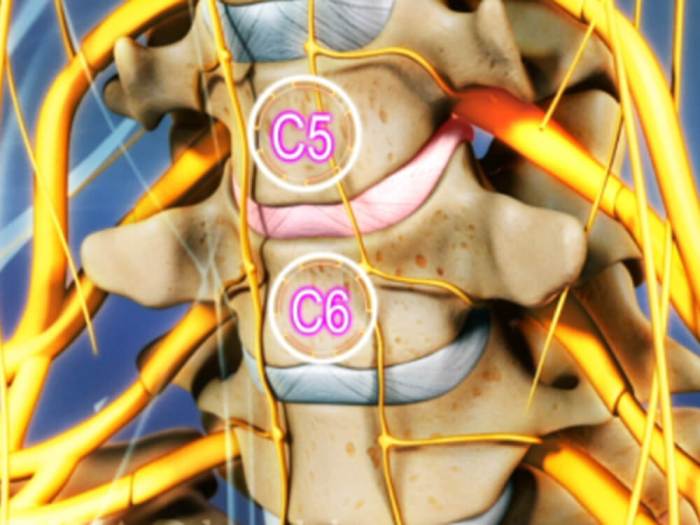Embark on a linguistic expedition into the realm of “thoat vi dia dem tieng anh,” a phrase that resonates deeply within the Vietnamese language and culture. Its multifaceted meanings and historical significance weave a tapestry that enriches our understanding of Vietnamese society and artistic expression.
From its historical roots to its contemporary usage, “thoat vi dia dem tieng anh” has played a pivotal role in shaping Vietnamese traditions, beliefs, and creative endeavors. Its journey through time offers a glimpse into the soul of a nation.
Definitions and Variations

In the Vietnamese language, “thoat vi dia dem tieng anh” literally translates to “English breathing,” referring to the act of speaking English fluently and naturally, akin to a native speaker. This phrase is commonly used to describe individuals who have mastered English pronunciation, grammar, and vocabulary to a high degree.
Variations
There are several variations of the phrase “thoat vi dia dem tieng anh,” each carrying subtle nuances in meaning:
- “Thoat vi dia dem tieng anh nhu gio” (literally, “English breathing like the wind”) emphasizes effortless and fluent English speaking, akin to the wind flowing freely.
- “Thoat vi dia dem tieng anh nhu nguoi ban xu” (literally, “English breathing like a native”) suggests a level of proficiency where the speaker’s English sounds indistinguishable from that of a native speaker.
- “Thoat vi dia dem tieng anh nhu mot nguon tu nhien” (literally, “English breathing like a natural spring”) highlights the speaker’s ability to express themselves in English as effortlessly as water flowing from a spring.
Historical Context

The phrase “thoat vi dia dem tieng anh” has a rich historical background, dating back to the early 20th century. It originated during the French colonial period in Vietnam, when the French language was the official language of education and government.
Vietnamese students were required to learn French, and those who excelled in the language were often given opportunities for higher education and employment.
Early Usage, Thoat vi dia dem tieng anh
The phrase “thoat vi dia dem tieng anh” first appeared in the early 1900s in the writings of Vietnamese intellectuals and nationalists. It was used to express the desire for Vietnam to become independent from French rule and to develop its own national identity.
Thoat vi dia dem tieng anh la mot ky nang rat quan trong trong thoi dai toan cuc hoa nhu hien nay. No mo rong cac co hoi giao tiep, ket noi va phat trien ban than. De tang cuong kha nang thoat vi dia dem tieng anh, ban co the tham khao Swot Analysis For Toms Shoes de hieu ro diem manh, diem yeu, co hoi va thach thuc khi hoc tieng anh.
Qua do, ban co the lap ke hoach hoc tap phu hop va dat duoc muc tieu thoat vi dia dem tieng anh cua minh.
The phrase was also used to promote the study of Vietnamese language and culture, and to encourage Vietnamese people to take pride in their heritage.
Examples in Historical Texts
* In a 1907 article in the newspaper “Dong Duong Tap Chi,” the author wrote: “We must strive for the day when Vietnam will be free from the yoke of colonialism, and when our children will be able to speak and write in their own language.”
In a 1913 speech, the nationalist leader Phan Boi Chau said
“The study of Vietnamese language and culture is essential for our national liberation. We must thoat vi dia dem tieng anh, and become masters of our own destiny.”
Cultural Significance: Thoat Vi Dia Dem Tieng Anh

Thoat vi dia dem tieng anh holds immense cultural significance in Vietnamese society, deeply entwined with traditions, beliefs, and social norms. Its origins can be traced back to the ancient Vietnamese belief in spirits and the afterlife.
In Vietnamese culture, it is believed that upon death, a person’s soul embarks on a journey to the underworld. Thoat vi dia dem tieng anh serves as a guide and protector during this perilous journey, aiding the deceased in overcoming obstacles and navigating the treacherous path to the afterlife.
Ritualistic Significance
Thoat vi dia dem tieng anh is an integral part of Vietnamese funeral rituals. During the funeral, the chant is performed by a ritual specialist known as a “thầy cúng” or “thầy pháp.” The chant is believed to guide the deceased’s soul to the afterlife, ensuring a peaceful and successful transition.
The chant also serves as a way for the living to pay their respects to the deceased and to express their sorrow and grief. It is believed that listening to the chant can bring comfort and solace to the bereaved family members.
Belief and Symbolism
Thoat vi dia dem tieng anh is deeply rooted in Vietnamese beliefs about the afterlife. It symbolizes the journey of the soul after death, the passage from the realm of the living to the realm of the dead.
The chant itself is believed to possess magical powers. It is said that the words of the chant can appease evil spirits, protect the deceased from harm, and guide them safely to the afterlife.
Literary and Artistic Expression

The phrase “thoat vi dia dem tieng anh” has been woven into the fabric of Vietnamese literature, poetry, and music, adding depth and resonance to creative expression.
In Vietnamese literature, the phrase evokes a sense of longing and nostalgia, capturing the yearning for a past that can only be glimpsed in dreams. In Nguyen Du’s epic poem “Truyen Kieu,” the protagonist Kieu laments her lost love, expressing her anguish through the line, “Thoat vi dia dem tieng anh: Nang lo phai mong co.”
(Roughly translated: “Escaping the realm of dreams into the night, I’m worried that my longing will fade away.”)
Poetry
In Vietnamese poetry, “thoat vi dia dem tieng anh” often serves as a metaphor for the ephemeral nature of life and the fleeting beauty of human existence. The poet Nguyen Quang Thieu writes in his poem “Dem” (Night): “Thoat vi dia dem tieng anh: Gio hom qua con day” (Roughly translated: “Escaping the realm of dreams into the night, the wind of yesterday still lingers”).
Through this imagery, Thieu conveys the sense that even in the darkness of night, the echoes of the past continue to linger in the present.
Music
In Vietnamese music, “thoat vi dia dem tieng anh” has been used to create poignant and evocative melodies. The song “Thoat Vi Dia Dem” by the band Pho Bang conveys the bittersweet emotions of longing and loss through its haunting lyrics: “Thoat vi dia dem tieng anh: Long ta buong voi tiec nuoi” (Roughly translated: “Escaping the realm of dreams into the night, our hearts are filled with regret”).
Modern Usage and Adaptations

In contemporary Vietnamese society, “thoat vi dia dem tieng anh” remains a widely used phrase, albeit with some adaptations and modern interpretations.One notable adaptation is the use of the phrase to describe a broader range of language learning experiences beyond formal classroom settings.
Nowadays, “thoat vi dia dem tieng anh” can refer to self-directed learning through online resources, immersion programs, or even informal language exchanges.
Modern Interpretations
In addition to its literal meaning, “thoat vi dia dem tieng anh” has also acquired a more metaphorical interpretation. For many Vietnamese, the phrase represents the idea of breaking free from linguistic limitations and embracing a globalized world. It signifies a desire to connect with the international community, access global knowledge, and participate in international collaborations.This
modern interpretation has led to the emergence of various initiatives and programs aimed at promoting English language proficiency in Vietnam. These initiatives often use “thoat vi dia dem tieng anh” as a rallying cry to encourage Vietnamese learners to overcome their language barriers and become more competitive in the global marketplace.
Helpful Answers
What is the meaning of “thoat vi dia dem tieng anh”?
It refers to the act of speaking English without fear or hesitation.
How is “thoat vi dia dem tieng anh” used in Vietnamese society?
It is encouraged as a way to promote English proficiency and global communication.